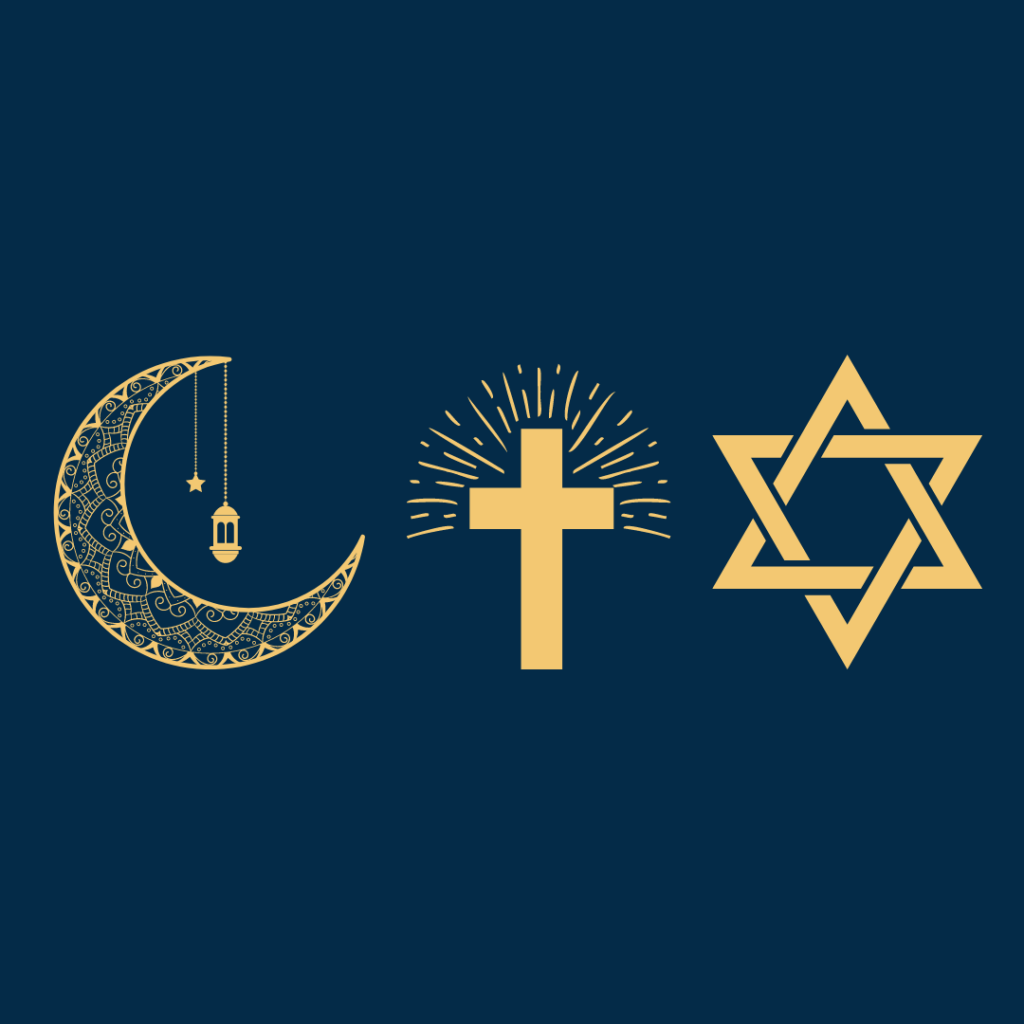
Inclusivity and diversity are two things that MSP is known for. We are a community of different races, faiths, and cultures, and we are proud to celebrate that! True to this sentiment the Middle Eastern and North African Psychology Club (MENAPC) will is honoring a variety of religious holidays celebrated by their members, culminating in a community luncheon on April 10th.
Ramadan and Eid
As Ramadan has already begun, starting the evening of Sunday, March 10th this year, MENAPC wanted to share some facts you may not have been aware of during this holy month in Islam and what your fellow Muslim colleagues may be practicing. Ramadan is the ninth month in the Islamic lunar calendar and begins with the first sighting of the new crescent moon. Muslims practicing Ramadan enjoy fasting from sunrise to sunset during these next 30 days. It is a spiritual month filled with reading the Quran (the Holy Book), prayer, and mindfulness of one’s faith, and is considered a very blessed month.
The prevailing belief among Muslims is that the Quran was revealed to the Prophet Mohammed (peace be upon him) in one of the final ten nights of Ramadan, called Laylat al-Qadr, laylat meaning “night of” and Qadr meaning a variation of power, destiny, or divine decree. The prayers can go throughout the night until it is time to eat in preparation to fast the next day, meaning many of your fellow Muslim colleagues are waking up from 4-5 am to eat their breakfast. Able-bodied Muslims are expected to abstain from eating, drinking, and sexual relations from dawn to sunset each day of the month. One of the main reasons for fasting Ramadan is that it is a spiritual cleanse and renewal of one’s faith that Muslims look forward to every year. It is a chance to take a break from the material world and practice self-control as well as empathy for those less fortunate and appreciate the blessings around us. Fasting also gives our bodies a chance to reset.
It is also important to be mindful of Muslim colleagues who can’t fast during Ramadan for reasons such as sickness, travel, pregnancy, breastfeeding, menses or post-natal bleeding, or extreme old age, as wll as those experiencing intense hunger and thirst in cases of war, famine, etc. Although unable to fast, they may partake in other forms of worship during Ramadan.
Ramadan ends at the next sighting of the new crescent moon which may fall on either April 9th or 10th for this year. Ramadan is followed by Eid Al Fitr, meaning festival of breaking the fast, which is one of the major celebrations Muslims partake in. This is celebrated by Eid prayer in the morning, dressing in nice clothes, and visiting family and loved ones.
Lent and Easter
MENAPC would also like to acknowledge the month of March as a time for students who are fasting for Easter. This period of fasting is called Lent. Lent is a time of worship and repentance. Lent lasts 40 days and is a time to prepare for the resurrection of Christ, also known as Easter. For those who are Catholic, Lent began on February 14th and will end on March 28th this year. March 28th is known as Holy Thursday. Holy Thursday-Easter Sunday is known as Holy Week. There are several other forms of Christianity that practice Lent and Easter; however, the calendar may be slightly different.
For those who participate in Lent, they may engage in four things: prayer, fasting, acts of service, and almsgiving. On Fridays, some who practice Lent abstain from consuming meat. Many individuals also may abstain from other foods, or food in general, and practice charitable work.
Passover
Passover, also known Pescah, is an 8-day celebration that takes place during the month of Nissan on the Hebrew calendar. Passover celebrates the emancipation of the Jewish people from the Egyptians. This year, the first night of Passover is on April 22nd, when the first Seder, a special ritual meal enjoyed by Jewish families, takes place after sunset. The Seder includes a traditional Seder plate which symbolizes different parts of the Passover story and shows us that the holiday is a commemoration of both suffering and joy.
In honor of Eid, Easter, and Passover the MENAPC is pleased to invite the community to a luncheon celebration taking place in MSP’s Atrium at 12:30 PM on April 10th. The event will consist of a Middle Eastern Halal meal (salad, rice, potato wedges, hummus, chicken, and kafta with juice and water) and a discussion about what makes Eid, Easter, and/or Passover special for our community. This event will also consist of a small presentation about Arab Heritage Month and mental health in the MENA community. Tickets for the event are $11 and can be purchased through the MENAPC general payment form now through April 7th.
 A special thanks to MENAPC President Deena Haddad, and the rest of the organization, writing this blog post.
A special thanks to MENAPC President Deena Haddad, and the rest of the organization, writing this blog post.